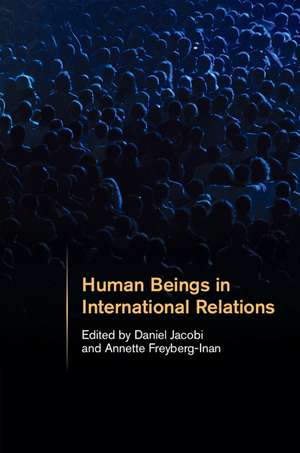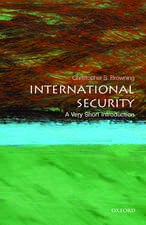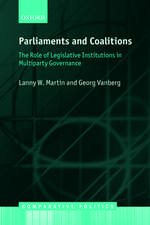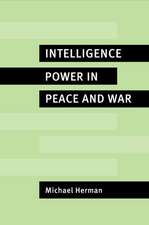Human Beings in International Relations
Editat de Daniel Jacobi, Annette Freyberg-Inanen Limba Engleză Hardback – 10 sep 2015
Preț: 758.03 lei
Preț vechi: 881.42 lei
-14% Nou
Puncte Express: 1137
Preț estimativ în valută:
145.06€ • 150.59$ • 120.96£
145.06€ • 150.59$ • 120.96£
Carte tipărită la comandă
Livrare economică 22 martie-05 aprilie
Preluare comenzi: 021 569.72.76
Specificații
ISBN-13: 9781107116252
ISBN-10: 1107116252
Pagini: 394
Ilustrații: 1 table
Dimensiuni: 152 x 229 x 22 mm
Greutate: 0.69 kg
Editura: Cambridge University Press
Colecția Cambridge University Press
Locul publicării:New York, United States
ISBN-10: 1107116252
Pagini: 394
Ilustrații: 1 table
Dimensiuni: 152 x 229 x 22 mm
Greutate: 0.69 kg
Editura: Cambridge University Press
Colecția Cambridge University Press
Locul publicării:New York, United States
Cuprins
Introduction: human being(s) in international relations Daniel Jacobi and Annette Freyberg-Inan; Part I. International Political Anthropology: 1. Between fear and despair: human nature in realism Annette Freyberg-Inan; 2. 'Human nature' and the paradoxical order of liberalism Stephen J. Rosow; 3. Disciplining human nature: the evolution of American social scientific theorizing Jennifer Sterling-Folker and Jason F. Charrette; 4. The Marxist perspective from 'species-being' to natural justice Chris Brown; 5. In biology we trust: biopolitical science and the elusive self Duncan Bell; 6. Greeks, neuroscience, and international relations Richard Ned Lebow; 7. Constructivism, realism, and the variety of human natures Samuel Barkin; 8. Feminism and the figure of Man Elisabeth Prügl; Part II. International Political Post-Anthropology: 9. Realism, agency, and the politics of nature Colin Wight; 10. A global human condition Mauro J. Caraccioli; 11. Imagining man – forgetting society? Benjamin Herborth; 12. On the social (re)construction of the human in world politics Daniel Jacobi; 13. Observing visions of man Oliver Kessler; 14. Who is acting in international relations? Jan-Hendrik Passoth and Nicholas J. Rowland; Conclusion: toward an International Political (Post-)Anthropology Annette Freyberg-Inan and Daniel Jacobi.
Recenzii
'Human Beings in International Relations is a theoretical treasure trove. Jacobi and Freyberg-Inan make us aware of a remarkable variety of theoretical perspectives on 'thinking the human'. They make those perspectives resonate with or contradict each other, unburying many research paths that must have been there all along, but still await our analysis.' Stefano Guzzini, Danish Institute for International Studies, Uppsala University and Pontifical Catholic University, Rio de Janeiro
'Talk of 'human nature', once common in international theory and international studies, has been much less prominent in recent decades. But thinking about the category of 'the human' can never be too foreign to any account of social life, and international affairs are no exception. This remarkable volume foregrounds both the extent to which our existing theoretical tools are interwoven with assumptions about human nature, and makes possible a series of considerations reaching beyond those assumptions.' Patrick Thaddeus Jackson, Associate Dean, School of International Service, American University, Washington DC
'It is a collection that accomplishes to a large extent what the editors Jacobi and Freyberg-Inan in their introduction promise to deliver: 'a comprehensive, balanced, open-minded, and up-to-date study of the human element, its relation to world politics, and our ways of producing knowledge about them.' Asli Calkivik, International Studies Review
'Talk of 'human nature', once common in international theory and international studies, has been much less prominent in recent decades. But thinking about the category of 'the human' can never be too foreign to any account of social life, and international affairs are no exception. This remarkable volume foregrounds both the extent to which our existing theoretical tools are interwoven with assumptions about human nature, and makes possible a series of considerations reaching beyond those assumptions.' Patrick Thaddeus Jackson, Associate Dean, School of International Service, American University, Washington DC
'It is a collection that accomplishes to a large extent what the editors Jacobi and Freyberg-Inan in their introduction promise to deliver: 'a comprehensive, balanced, open-minded, and up-to-date study of the human element, its relation to world politics, and our ways of producing knowledge about them.' Asli Calkivik, International Studies Review
Descriere
Asks how, why and to what ends humans appear in international relations theories and how this makes us interpret world politics.


















